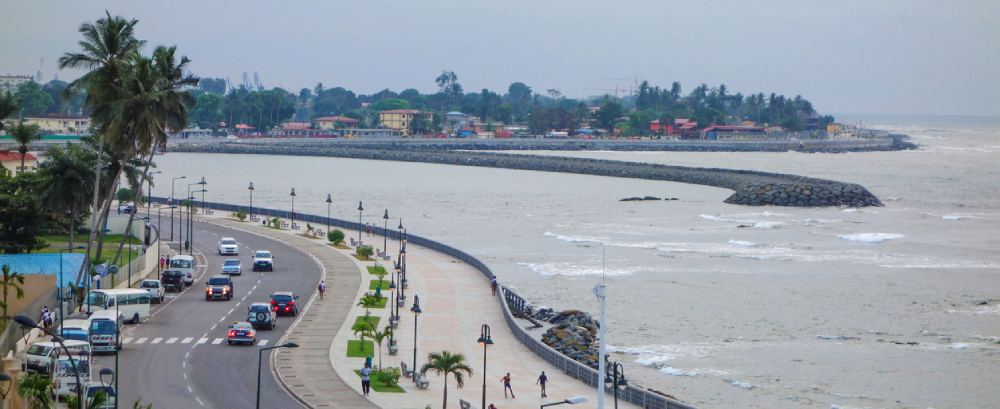
Gabon
April 12, 2025
South Africa
April 12, 2025Equatorial Guinea, a small country on the west coast of Central Africa, is rich in natural resources, particularly hydrocarbons like oil and natural gas. These resources have been the backbone of the country’s economy for decades. While the oil and gas sector dominates, there are also other mineral resources present in the country, though they are less developed. Here’s an overview of the key mineral resources in Equatorial Guinea:
Key Mineral Resources
- Oil:
- Overview: Oil is by far the most significant natural resource in Equatorial Guinea, and the country is one of the largest oil producers in sub-Saharan Africa. The oil sector has driven the country’s economy since the 1990s.
- Major Oil Fields: Most of Equatorial Guinea’s oil production comes from offshore fields, including the Zafiro, Ceiba, and Alba fields.
- Reserves: Equatorial Guinea has substantial proven oil reserves, although production has been declining in recent years as some fields mature. The government is actively seeking new investments in exploration to discover additional reserves and extend the life of the oil sector.
- Natural Gas:
- Overview: Natural gas is another crucial resource for Equatorial Guinea, with the country holding significant reserves. The natural gas sector has been developed primarily to support the liquefied natural gas (LNG) industry.
- Major Gas Fields: The Alba gas field is one of the key sources of natural gas in Equatorial Guinea.
- Reserves: Equatorial Guinea has substantial natural gas reserves, and the government has been working to develop gas infrastructure, including LNG facilities, to maximize the value of these resources.
- Gold:
- Overview: Gold deposits have been identified in Equatorial Guinea, particularly in the eastern region near the border with Gabon. However, gold mining is not yet fully developed and remains largely artisanal.
- Reserves: The gold reserves in Equatorial Guinea are still being explored, with potential for future development. The sector is underdeveloped, and there is interest in attracting investment for exploration and industrial-scale mining.
- Bauxite:
- Overview: Bauxite, the primary ore for aluminum, is found in Equatorial Guinea, particularly on the island of Bioko. However, the bauxite deposits have not been extensively developed.
- Reserves: The bauxite reserves in Equatorial Guinea are not fully explored or developed, and there is potential for further investigation to determine the viability of these deposits.
- Diamonds:
- Overview: There have been reports of diamond deposits in Equatorial Guinea, although they are not well documented and have not been commercially developed.
- Reserves: The diamond reserves in Equatorial Guinea are not well known, and any potential deposits remain largely unexplored.
- Other Minerals:
- Uranium: There have been some indications of uranium deposits in Equatorial Guinea, but they have not been thoroughly explored or developed.
- Iron Ore: Similar to uranium, there are reports of iron ore deposits, but these have not been fully explored or exploited.
- Quartz: Deposits of quartz are present and could be used in various industrial applications, though they remain largely undeveloped.
Investment and Extraction Situation
- Oil and Gas Dominance: The oil and gas sector is the cornerstone of Equatorial Guinea’s economy, accounting for the vast majority of the country’s GDP, government revenue, and export earnings. The government has worked to attract foreign investment in this sector and has developed significant infrastructure to support oil and gas production, including LNG facilities.
- Exploration and Potential: While the oil and gas sector is well-developed, other mineral resources remain largely unexplored and underdeveloped. The government has shown interest in diversifying the economy by promoting the exploration of other minerals such as gold, bauxite, and possibly uranium, but these efforts are still in the early stages.
- Challenges and Opportunities: The development of non-hydrocarbon minerals in Equatorial Guinea faces challenges such as limited infrastructure, the need for more detailed geological surveys, and the high cost of exploration in remote or difficult-to-access areas. However, there are significant opportunities for investment, particularly in gold and bauxite exploration.
- Environmental and Social Impact: The focus on oil and gas has had significant environmental and social impacts, including pollution, habitat destruction, and the displacement of communities. As the country considers developing other mineral resources, these impacts will need to be managed carefully to ensure sustainable and inclusive growth.


